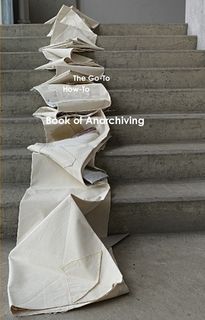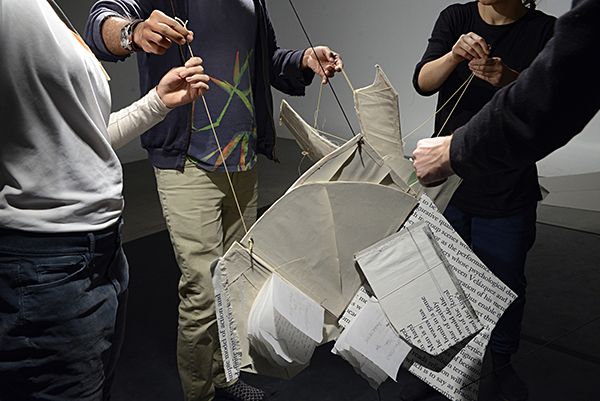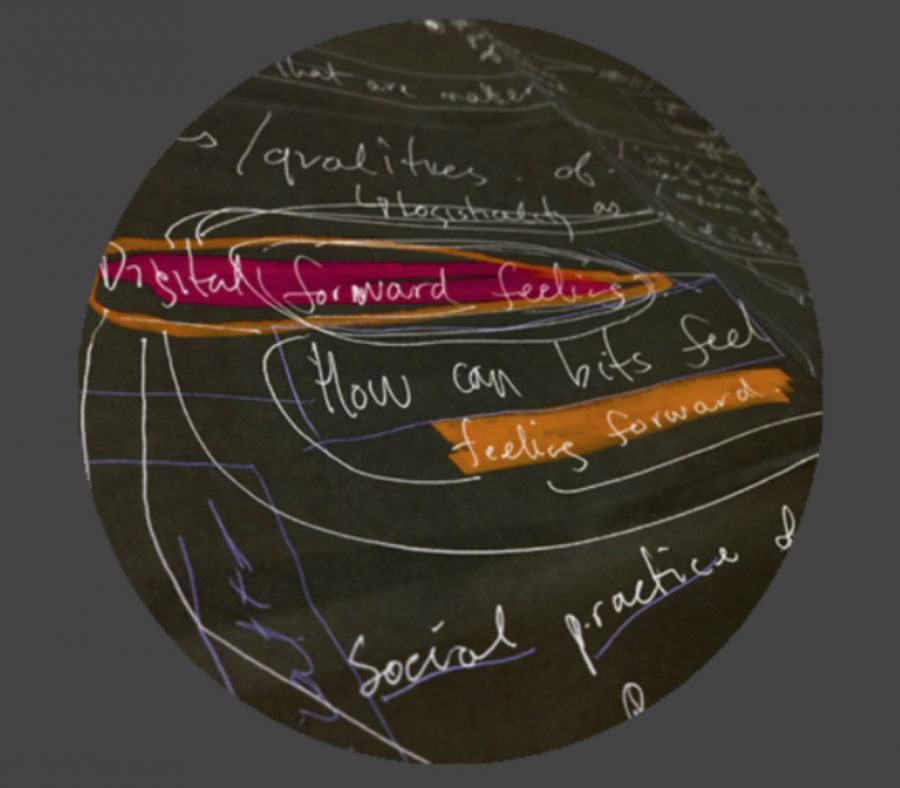IDOC Type:
In Folders:
Disorientating Documentation – An Anarchiving Process
The linearity of documentation is deconstructed in order to reveal its creative potential for the individual and collective experience. For this research session, we have created a score and traces from our research which will lead the group into a participatory anarchival process to generate new knowledge.
ABSENCE FICTION THE IN-BETWEEN
Our work process has been defined by our group. Three of our research members have been working in Vienna for the past week and one of our collective has been working from her home in a small city near Berlin. This distance has helped to shape the research.
Anarchival processes are collective processes in which allow the “me” to move into the background in order to attend to the needs of the group. Attending to the sensuous, the affective, and the discursive; and working individually together and collectively we research, observe, and perform in order to produce traces and knowledge which feed forward to the research of new processes.
Traces are the tip of the iceberg and allude to the submerged sensuous, affective, and discursive experiences which created them. They are in essence an anarchive of those experiences which cannot be fully possessed due to their ephemerality, but which can be impulses push the research further.
One of the primary sources for our research, an anarchive in the form of a book, is The Go-to How to Book of Anarchiving, Available as a free download from SenseLab.
Other examples of anarchives:
The 5-dimensional book
A digital proposition
John -
We invite you to join us in the research that we have been doing in the past week and the months before. Today is a step in the ongoing research into anarchival communal processes aimed to generate new knowledge. Knowledge arising from the sensuous, the affective, and the discursive. The whole (holistic) body.
- Knowledge in dance lies not in words, but primarily, in the body and the senses. Dance research requires a process of sense making. Stanage (1987) tells us that reflection is instrumental in making us aware of the intuitive knowledge situated in the emotions and the body, and sense making occurs when cognitive (discursive) knowledge and the knowledge in the body are related through experience and reflection. What emerges from this process of sense making is a personal embodied understanding (Taylor, 2016) of abstract concepts as they are experienced in the body and through the emotions. In order to address and share this personal embodied understanding creative forms of documentation are necessary. (Taylor & Erdur, 2018)
Contribute traces to our google drive folder. (gmail account required)
https://drive.google.com/drive/folders/1DO5mTGxR0ThQeiGPeVXOJBtR-o6CjjZE?usp=sharing
or send to: jwetay@gmail.com






